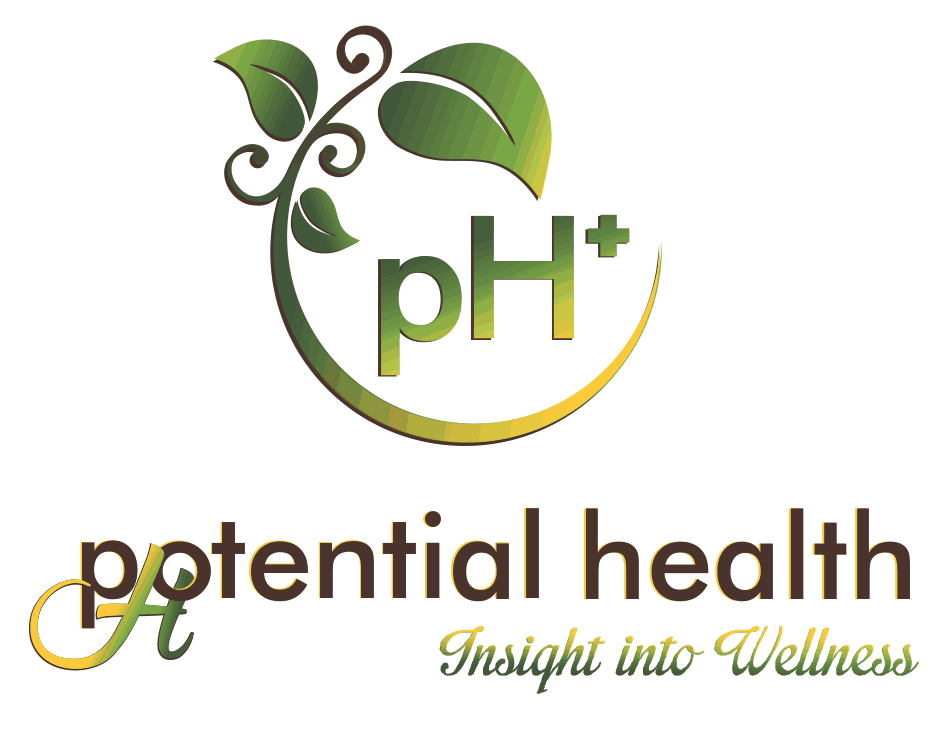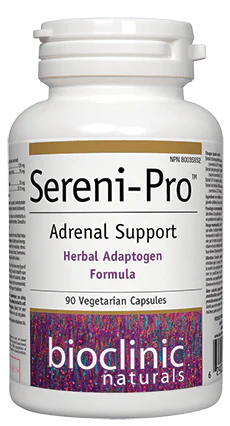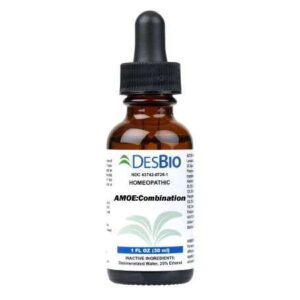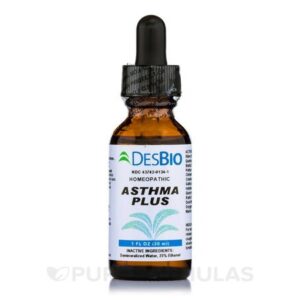Description
Benefits
- Anti-stress and antioxidant adaptogens restore and revitalize the body’s glands and organs under isolated and chronic stress conditions
- Herbal formula that contains no glandular extracts
- Provides broad-spectrum help for a variety of stress-related disorders
- Safe, non-addictive, and may be used long term
- Suitable for vegetarians/vegans
Feature Summary
Ashwagandha (Withania somnifera), Siberian ginseng (Eleutherococcus senticosus), Lavender (Lavandula angustifolia), and Rhodiola (Rhodiola rosea) are herbs known for their adaptogenic and calming properties, as well as for mitigating the effects of stress and fatigue. Adaptogens induce stress-protective benefits facilitated through the regulation of homeostasis via several molecular networks, including modulation of the hypothalamic-pituitary-adrenal axis and expression of multiple stress-related proteins including neuropeptide Y.1-3 Ashwagandha has been found to limit the production of dopamine and other hormones in response to stress and also acts as a GABA receptor agonist, all of which have the effect of reducing the overall stress response.4-6 In controlled trials, it has improved memory and several markers of cognitive function among individuals with mild cognitive impairment, along with reducing cortisol, stress, and anxiety in stressed healthy adults.7-9 Siberian ginseng root contains eleutherosides, known to have anti-fatigue, anti-stress, and immunomodulatory effects, and has been shown clinically to have therapeutic efficacy for chronic fatigue and stress, as well as improving athletic performance.10,11 Lavender oil is thought to act on both the central and sympathetic nervous system, and clinically has been shown to have a calming and relaxing effect, promoting an improved sense of well-being.12,13 Rhodiola rosea has been clinically shown to improve attention, cognitive function, and mental performance, decrease the cortisol response to stress, exert an anti-fatigue effect, enhance anaerobic exercise performance, and improve the mood-elevating effect of SSRIs with a favourable safety profile.14-19
Medicinal Ingredients
| Each Capsule Contains: | |
| Sensoril® Ashwagandha Extract (Withania somnifera) (root and leaf) | 125 mg |
| (Standardized to 8% withanolides) | |
| Siberian Ginseng Extract (Eleutherococcus senticosus) (root) | 75 mg |
| (Standardized to 0.8% eleutherosides) | |
| Lavender 5:1 Extract (Lavandula angustifolia) (aerial) | 75 mg |
| Rhodiola Extract (Rhodiola rosea) (root) | 37.5 mg |
| (Standardized to 3.5% rosavins, 1% salidrosides) |
Non-Medicinal Ingredients
Rice starch, vegetarian capsule (carbohydrate gum [cellulose], purified water), vegetable grade magnesium stearate (lubricant).
Allergens:
Contains no artificial colours, preservatives, or sweeteners; no dairy, sugar, wheat, gluten, yeast, soy, egg, fish, shellfish, animal products, salt, tree nuts, or GMOs. Suitable for vegetarians/vegans. Sealed for your protection. Do not use if seal is broken. For freshness, store in a cool, dry place.
Recommended Use:
1–2 capsules 2 times per day or as directed by a health care practitioner. Not to be taken immediately before bedtime. Consult a health care practitioner for use beyond 1 month.
Contraindications
Consult a health care practitioner prior to use if you have any type of acute infection or if you are pregnant or breastfeeding. Consult a health care practitioner if symptoms persist or worsen. Consumption with alcohol, other drugs or natural health products with sedative properties is not recommended. Do not use if you have high blood pressure. Keep out of reach of children.
Drug Interactions
Theoretically, the herbs present in Sereni-Pro may have additive effects when used with sedative medications, such as benzodiazepines or CNS depressants, and should be used with caution when taken concomitantly. Consumption with alcohol, other drugs or natural health products with sedative properties is not recommended.
- Panossian, A., &Wikman, G. (2009). Evidence-based efficacy of adaptogens in fatigue, and molecular mechanisms related to their stress-protective activity. Current Clinical Pharmacology, 4(3), 198-219.
- Panossian, A., Wikman, G., &Kaur, P., et al. (2009). Adaptogens exert a stress-protective effect by modulation of expression of molecular chaperones. Phytomedicine, 16(6-7), 617-622.
- Panossian, A. (2017). Understanding adaptogenic activity: specificity of the pharmacological action of adaptogens and other phytochemicals. Annals of the New York Academy of Sciences, 1401(1), 49-64.
- Archana, R., &Namasivayam, A. (1999). Antistressor effect of Withania somnifera. Journal of Ethnopharmacology, 64(1), 91-93.
- Auddy, B., Hazra, J., Mitra, A., et al. (2008). A standardized Withania somnifera extract significantly reduces stress-related parameters in chronically stressed humans: A double-blind, randomized, placebo-controlled study. JANA, 11, 50-56.
- Yin, H., Cho, D. H., et al. (2013). GABA-mimetic actions of Withania somnifera on substantia gelatinosa neurons of the trigeminal subnucleus caudalis in mice. American Journal of Chinese Medicine, 41(5), 1043-1051.
- Choudhary, D., Bhattacharyya, S., &Bose, S. (2017). Efficacy and safety of Ashwagandha (Withania somnifera (L.) Dunal) root extract in improving memory and cognitive functions. Journal of Dietary Supplements, 14(6), 599-612.
- Ng, Q. X., Loke, W., Foo, N. X., et al. (2020). A systematic review of the clinical use of Withania somnifera (Ashwagandha) to ameliorate cognitive dysfunction. Phytotherapy Research, 34(3), 583-590.
- Salve, J., Pate, S., Debnath, K., et al. (2019). Adaptogenic and anxiolytic effects of ashwagandha root extract in healthy adults: A double-blind, randomized, placebo-controlled clinical study. Cureus, 11(12), e6466.
- Kuo, J., Chen, K. W., Cheng, I. S., et al. (2010). The effect of eight weeks of supplementation with Eleutherococcus senticosus on endurance capacity and metabolism in human. Chinese Journal of Physiology, 53(2), 105-111.
- Szolomicki, J., Samochowiec, L., et al. (2000). The influence of active components of Eleutherococcus senticosus on cellular defence and physical fitness in man. Phytotherapy Research, 14(1), 30-35.
- Akhondzadeh, S., Kashani, L., Fotouhi, A. (2003). Comparison of Lavandula angustifolia Mill. tincture and imipramine in the treatment of mild to moderate depression: a double-blind, randomized trial. Progress in Neuro-Psychopharmacology &Biological Psychiatry, 27(1), 123-127.
- Louis, M., &Kowalski, S. D. (2002). Use of aromatherapy with hospice patients to decrease pain, anxiety, and depression and to promote an increased sense of well-being. American Journal of Hospice and Palliative Care. 19(6), 381-386.
- Olsson, E. M., von Schéele, B., &Panossian, A. G. (2009). A randomised, double-blind, placebo-controlled, parallel-group study of the standardised extract shr-5 of the roots of Rhodiola rosea in the treatment of subjects with stress-related fatigue. Planta Medica, 75(2), 105-112.
- Darbinyan, V., Aslanyan, G., Amroyan, E., et al. (2007). Clinical trial of Rhodiola rosea L. extract SHR-5 in the treatment of mild to moderate depression. Nordic Journal of Psychiatry, 61(5), 343-348.
- Bystritsky, A., Kerwin, L., &Feusner, J. D. (2008). A pilot study of Rhodiola rosea (Rhodax) for generalized anxiety disorder (GAD). Journal of Alternative and Complementary Medicine, 14(2), 175-180.
- Ballmann, C. G., Maze, S. B., Wells, A. C., et al. (2019). Effects of short-term Rhodiola Rosea (Golden Root Extract) supplementation on anaerobic exercise performance. Journal of Sports Science, 37(9), 998-1003.
- Gao, L., Wu, C., Liao, Y., et al. (2020). Antidepressants effects of Rhodiola capsule combined with sertraline for major depressive disorder: A randomized double-blind placebo-controlled clinical trial. Journal of Affective Disorders, 265, 99-103.
- Mao, J. J., Xie, S. X., Zee, J., et al. (2015). Rhodiola rosea versus sertraline for major depressive disorder: A randomized placebo-controlled trial. Phytomedicine, 22(3), 394-399.




